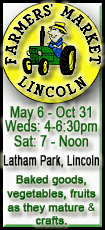 But another Havana Club does exist, one made by Bermuda-based rum giant Bacardi Ltd. A variety of Cohiba cigars, once rolled exclusively for Fidel Castro, is produced by Swedish Match North America of Virginia, and a Miami firm offers its own version of Cubita, a top Cuban coffee.
But another Havana Club does exist, one made by Bermuda-based rum giant Bacardi Ltd. A variety of Cohiba cigars, once rolled exclusively for Fidel Castro, is produced by Swedish Match North America of Virginia, and a Miami firm offers its own version of Cubita, a top Cuban coffee.
Washington's 47-year-old trade embargo has kept Cuban products out of the U.S.
- but hasn't prevented companies from using the communist island's brand names.
As the U.S. and Cuba consider better ties, such trademark issues would have be settled before any easing of the embargo. The fight between Bacardi and the Cuban government for the Havana Club name already has played out in the U.S. courts and Congress for more than a decade
- and is now before Spain's high court.

But the battles are about so much more than brand names. They are charged with 50 years of emotion over Fidel Castro's 1959 revolution and expropriation of private companies as he implemented socialism. They are also rooted in the future as U.S. corporations face the specter of new competition from Cuban products, which may carry a special allure after being banned for nearly a half century.
"There are U.S. interests thinking about how they are going to be affected by an influx of Cuban products, and the outlook is not always positive," said Jake Colvin, director of the Washington-based USA Engage, which opposes the embargo.
Americans craving all things Cuban already can buy products inspired by the Caribbean island
- just not made there.
Bacardi's Havana Club is an 80-proof rum that has sold in Florida since 2006, and sales have been so strong, it's thinking of expanding the label to other states, said spokeswoman Patricia M. Neal.
Even though Cuba's Havana Club rum can't be sold in the U.S., the Cuban government still sued Bacardi for using the name.
Bacardi argues it owns the name because the original Havana Club was expropriated by Castro from its Cuban producers, the Arechabala family, who went into exile. Bacardi bought the name and recipe from the Arechabalas in 1997.
Cuba says it registered the Havana Club trademark in the U.S. in 1976 after the Arechabalas let their claim on it expire. It has sold the rum internationally since 1993 in a joint partnership with French spirits consortium Pernod Ricard.
So far the U.S. courts have sided with Bacardi based on a 1998 federal law that prevents the registration or renewal of U.S. trademarks tied to companies nationalized by the Cuban government. Cuba has appealed its most recent case to the U.S. District Court of Appeals in Washington.

Meanwhile, Cuba's Havana Club is winning abroad. A Bacardi suit filed in a Spanish court against the Cuban government and Pernod Ricard over the trademark in that country was thrown out in 2007. Bacardi, too, has appealed, and the case is before the Spanish Supreme Court.
The true argument is over who can claim to produce authentic Cuban rum - especially if the country opens up to global commerce.
Bacardi, a family-owned spirits conglomerate founded in Santiago, Cuba, in 1862, pioneered the light, dry smoothness Cuban rum is now famous for, devising a charcoal-filter system and aging in oak barrels for added sweetness.
But the Bacardis joined the fiercely anti-Castro exile community in Miami after Castro nationalized the company in 1960. Havana Club, like all Bacardi rums, is made in Puerto Rico
- and says so on the bottle.
Still, Neal says her company's Havana Club transports consumers "back to the time it was created: sultry nights, classy nightclubs, and pulsating Latin music, enjoyed by locals and visitors alike."
Cuba and Pernod Ricard spent $70 million to rehabilitate a Havana Club distillery specializing in darker, higher quality anejo rum in San Jose de Las Lajas.
"If I have a recipe, am I producing a Cuban rum? No. Cuban rum is not a recipe. It's an expression of an entire culture," said Navarro, while scrutinizing stacks of barrels filled with aging rum.
Even without the U.S. market - 40 percent of world rum drinkers - Cuban Havana Club has seen its annual sales soar 13 percent to 3.4 million cases. Bacardi's more than 200 brands and labels sell 20 million cases in 150 countries every year.
It's a debate that may ultimately be decided by consumers.
John Verburg, manager at Cafe Habana in Ann Arbor, Michigan, uses Barcardi to mix his mojitos, the famous Cuban cocktail of rum, sugar and mint. But he's asked all the time when he will get rum "authentically from Cuba."
"I don't know if people are salivating yet," Verburg said, "but it could be something very exciting."